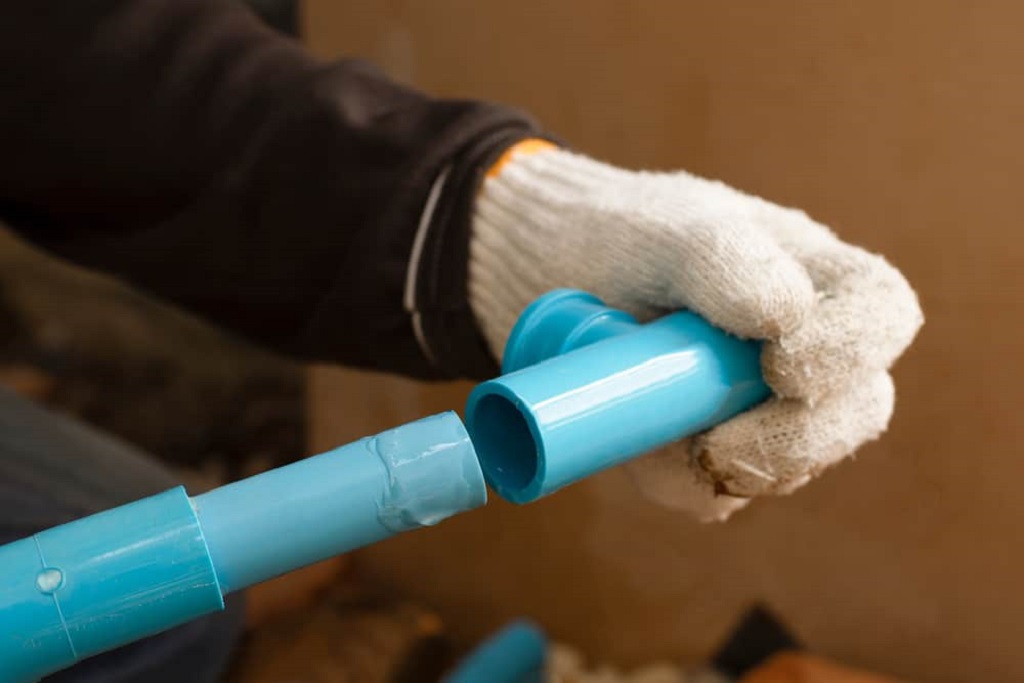Selecting the best plumbing cement is key if you’re joining PVC or ABS plastic pipes. It will determine how well the pipe and fittings will chemically fuse, avoiding joint failure over time.
First, select a solvent cement with a body that is adequate for your pipe size and application site conditions. Next, evaluate its set or cure time to match your project schedule.
Read the Label
There are many types of plumbing cement available on the market. It means you must read the label carefully to select the best type for your project. It will ensure you get the right pipe and fittings to join the pipes and prevent leaks and clogs.
Some popular plumbing cement brands at IPS Corporation include Weld-On, Gorilla, Oatey, and others. These products are formulated for plastic pipes (PVC, CPVC, and ABS) to create a strong seal.
If you’re looking for an easy-to-use, affordable cement, try Oatey PVC Adhesive Combo Glue and Primer. This glue has a fast setting time and can be applied to almost all types of PVC. It has a swab that makes the application super convenient and helps spread it precisely over the fittings to achieve expert-like results.
Before applying the adhesive, ensure the pipe and fitting are clean and dry. It will ensure that the glue sticks well to the pipe and help you get a stronger bond than a non-plumbing product.
Once the pipe and fitting are dry, you can apply the cement. It will soften the plastic and allow it to form a bond, preventing leaks and clogs.
When the joint is dry, hold both parts together for about 30 seconds to ensure they are properly bonded. It will ensure that the new connection will last a long time and be solid.
Check the Pipe Size
Getting the right size for your pipe and fittings is essential for successful plumbing. However, the process can be confusing if you don’t know how to check the pipe size. Fortunately, a few simple methods will help you figure out the correct size.
When checking the pipe size, you’ll need a measuring tape and a ruler to get an accurate measurement. You can also measure the inside diameter of the fittings you’ll connect to the pipes.
Another way to identify the pipe’s size is to read the label on the pipe. It will often have a measurement and classification like Sch 40 or Sch 80. Alternatively, you can use an online calculator to get an idea of its size.
One of the best ways to determine a pipe’s actual size is to use the DN or Diametre Nominal designation. It is an international standard and is a North American NPS equivalent that shows the pipe’s actual size in mm.
Check the Temperature
If you’re installing PVC pipes, you’ll want to choose a solvent-based pipe cement rated for the temperature and moisture conditions of your application site. You’ll also want to verify that it’s rated for both pressurized and non-pressurized projects and meets applicable codes and standards.
In hot environments, solvents will penetrate the surface of pipes and fittings more deeply than in cooler climates. That can increase the risk of puddling inside the joints, weakening the joint over time and leading to a leak. To avoid this, you should work in the morning or evening, if possible, to ensure that your surfaces are cool before applying solvent cement.
Temperature also affects the set time for plumbing cement. Generally, a heavier-bodied option takes longer to set than a medium- or regular-bodied one. That’s especially true if you’re working in an outdoor area where temperatures are hot or cementing joints at a facility on a warm day.
Depending on the manufacturer, many types of plumber’s glue are rated for ambient temperatures ranging from -15 to 110 degrees Fahrenheit (-5 to 50 degrees Celsius). Weld-On offers several options that meet these specifications, including their PVC 727 Hot’ R Cold Medium Bodied Cement, rated for various temperatures and humidity.
Check the Pressure
The pressure of the water flowing through the pipes and fittings is a major factor in selecting the best plumbing cement for your project. Whether you’re working on a residential plumbing job or an industrial application, choosing the right product for the job is critical.
Plumbers use different types of pipes, such as copper, steel, and PEX tubing. Each type of pipe requires its type of solvent-weld cement to create a watertight bond. Unlike solder, threaded connections, or crimp joints, solvent welds soften and fuse the surfaces of the pipes and fittings, creating one strong unit that can handle a high-pressure volume.
When choosing the best solvent-weld cement, check the pressure rating and formulation of the product. It will ensure the product will work for your specific application site and the temperature and moisture conditions at your installation site.
Some manufacturers of solvent-weld cement offer a variety of pressure ratings and formulas for different pipe and fitting sizes, so be sure to choose the right product for your specific application. It will help you avoid unnecessary waste and costly damage to the finished product.
If installing a high-pressure pipe, consider using industrial-grade glue with a higher pressure rating. Some of these can be found at home improvement stores. They are typically thicker and stronger than standard low-pressure glues, but they are not always the cheapest option.
⚠ Article Disclaimer
The above article is sponsored content any opinions expressed in this article are those of the author and not necessarily reflect the views of CTN News






